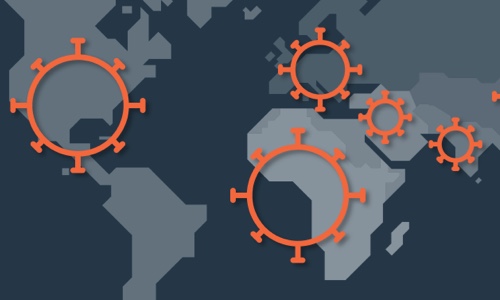Publish your research fast, openly, and in compliance with the UKRI open access policy
Find out moreSupporting UKRI authors with open access
F10000Research is making it easier for UKRI-funded authors to publish their research in compliance with funder mandates.
Our unique model allows researchers to disseminate their findings fast and openly, and take control of their publication from start to finish thanks to a transparent post-publication peer review process.
As pioneers in open science, we operate a progressive open data policy, making us fully compliant with the open access and data sharing policies of the main institutions and funders, including the UKRI.
We publish a wide range of research article types, ensuring that you can receive credit for all your research outputs. From traditional Research Articles to more unique formats, such as Study Protocols, Data Notes, and Living Systematic Reviews, we have an article type for every step in your research process.
Want to publish your article in 2023? Thanks to our innovative model there is still time to see your work published this year. Submit by mid-November to give your research the best chance of being published in 2023.

Hate research waste?
So do we.
That’s why we offer a wide range of non-traditional article types, allowing you to tell the full story of your research.
Find the perfect home for your research
At F1000Research, there are a number of different publishing options to make the most of your research.
Our Gateways provide thematic content hubs which collect together publications related to a particular organization or research community. Submitting your article to a Gateway ensures additional visibility for your work and publication alongside other high quality contributions from your research community.
By publishing in any of our dedicated Gateways you will be fully compliant with the new open access and data sharing policy requirements from the UKRI for peer-reviewed research articles.
Emerging Diseases and Outbreaks Gateway
Supporting the rapid sharing of all research related to global outbreaks and emerging diseases
The Emerging Diseases and Outbreaks Gateway supports the need for the rapid sharing of all research outputs related to global disease outbreaks.
Find out more
Oncology Gateway
Publish your oncology research rapidly and openly to advance knowledge and beat cancer sooner
The Oncology Gateway provides a community area for all those involved or interested in cancer research to access and publish articles openly. We welcome submissions in various article formats across all topics in oncology research, from biomarkers to cancer treatments and survivorship.
Find out more
Health Services Gateway
Facilitating open and transparent research into health services
Example Copy: Leverage agile frameworks to provide a robust synopsis for high level overviews. Iterative approaches to corporate strategy foster collaborative thinking to further the overall value proposition
Find out more
Accelerate the pace of discovery and get credit for your work with open data
As part of our open data policy, we ask our authors to share all data underlying their research findings in an open format, together with details of any software used to process the results.
It is essential that others can see the source data in order to be able to replicate the study and analyze the data, as well as in some circumstances, reuse it.
But, what’s in it for you?

![]() Boost the credibility of your research
Boost the credibility of your research
Open data enables replication and validation of your research, which in turn boosts its credibility and robustness. By sharing your data openly, your entire research project becomes more transparent.
![]() Enhance the visibility of your research
Enhance the visibility of your research
Increase the discoverability of your research by reciprocally linking your article and its related datasets. Plus describing your data with rich, meaningful, machine-readable metadata makes it easy for humans and computers to find use.
![]() Progress in your career
Progress in your career
Researchers can benefit from increased credit and recognition for their outputs by sharing their research data, which in turn may lead to increased opportunities for collaboration – even across disciplines. Plus, one 2019 study suggests that open data can generate up to 25% more citations!
![]() Develop a better understanding of your field
Develop a better understanding of your field
Open data supports learning and enables a deeper, richer understanding of the research topic – this is particularly useful in teaching. as students are able to interrogate raw research data for themselves.
Ready to submit?
Starting your publication journey with F1000Research couldn’t be easier.
Thanks to our rapid publication model, your research is quickly available to read, share and cite. Once published, all articles undergo our unique post-publication peer review process that encourages a collaborative and constructive approach to research.

